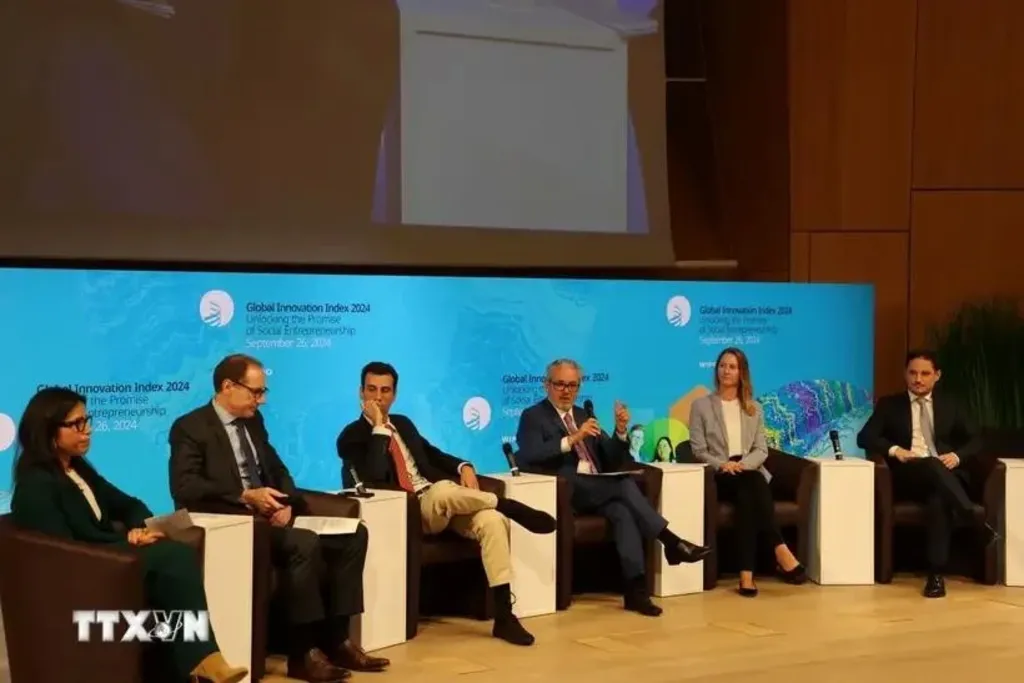 |
| t the ceremony to announce the 2024 GII report in Switzerland on September 26__Photo: VNA |
Minister of Science and Technology Huynh Thanh Dat has emphasized the need for Vietnam to pay heed to both innovation input and output, thus maintaining and improving its ranking on the Global Innovation Index (GII).
The GII reveals the most innovative economies in the world, ranking the innovation performance of around 130 economies while highlighting innovation strengths and weaknesses, according to the World Intellectual Property Organization (WIPO).
Over the past years, the Vietnamese Government has taken the index as a key management tool, and assigned ministries, agencies, and localities to raise relevant indicators.
In the 2024 GII report, released by the WIPO at a ceremony held in Switzerland on September 26, Vietnam climbed two places, now ranking 44th out of the 132 countries and economies, reflecting its ongoing progress.
Among the lower middle-income countries, Vietnam maintains its second position in the ranking, Minister Dat told the press, noting that the country ranks 1st globally in high-tech exports, high-tech imports. and creative goods exports.
Other improvements are also seen in venture capital, with the number of venture capital deals jumping 27 places to the 50th, and that of venture capital recipients up 10 spots to the 44th.
Dat attributed the results to the drastic leadership of the Government and the Prime Minister, as well as the engagement of ministries, agencies, and localities, the science and innovation community, and businesses.
He, however, pointed to Vietnam’s sluggishness in institutions, ICT infrastructure, and human capital and research, especially education, stressing that institutional reforms require greater efforts to facilitate socio-economic development driven by science, technology, and innovation.
The minister also highlighted the need for Vietnam to continue improving education quality to attract both domestic and international students, invest more in educational models to meet international standards, and promote the role of universities in cooperation with the business circle in research and development, and innovation.
He suggested devising special breakthrough mechanisms and policies to facilitate science, technology, and innovation; and improving businesses’ capacity of adopting and absorbing cutting-edge technologies.
Ministries and agencies also need to implement solutions concertedly to improve poor indicators, while localities should work harder to better the Provincial Innovation Index, contributing to raising the GII in the time ahead, he said.- (VNA/VLLF)









